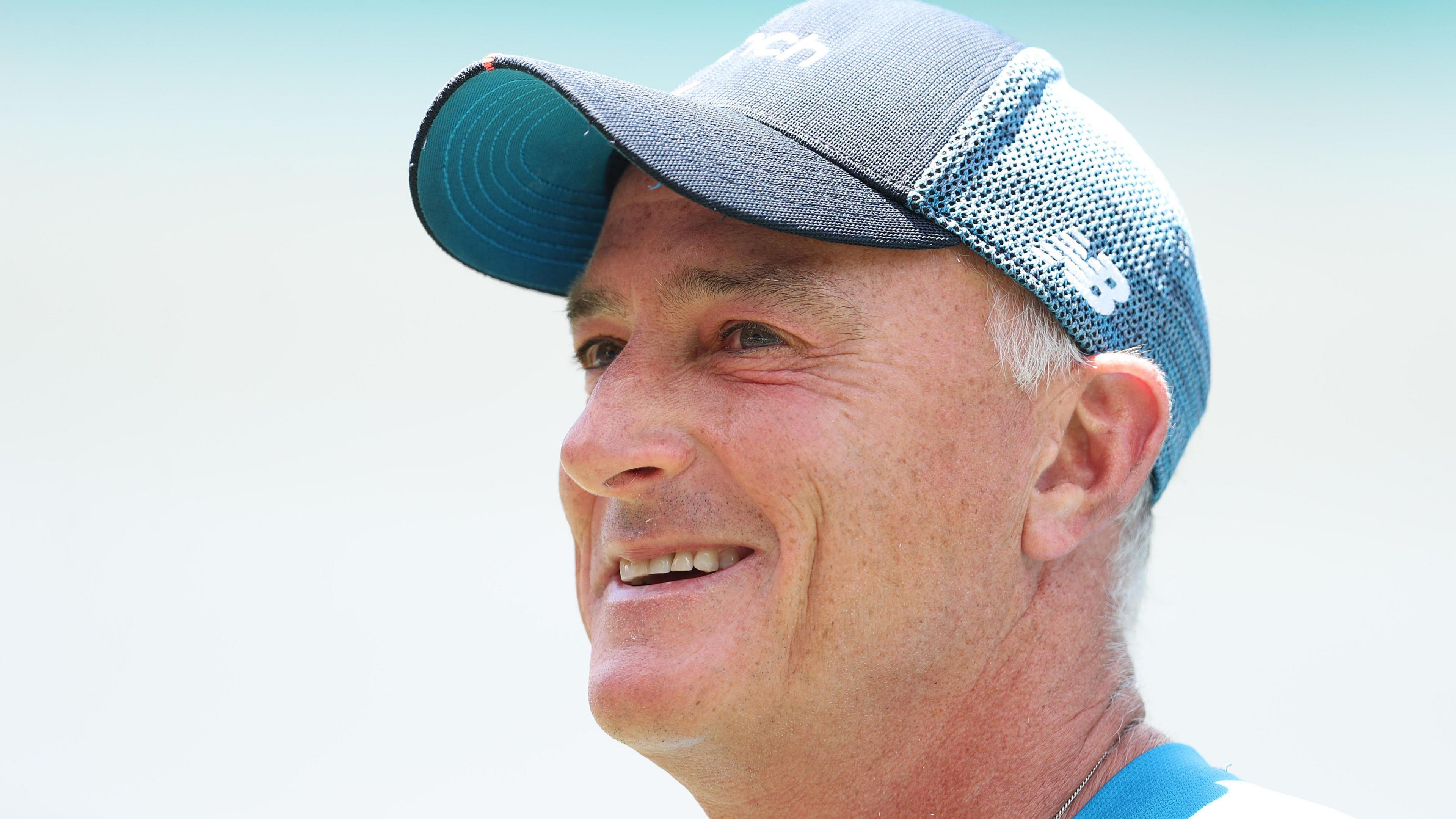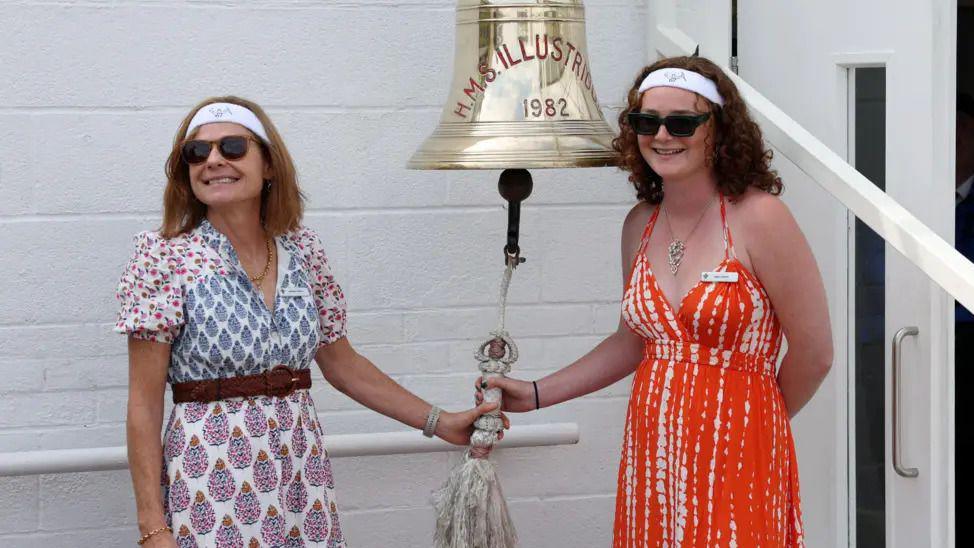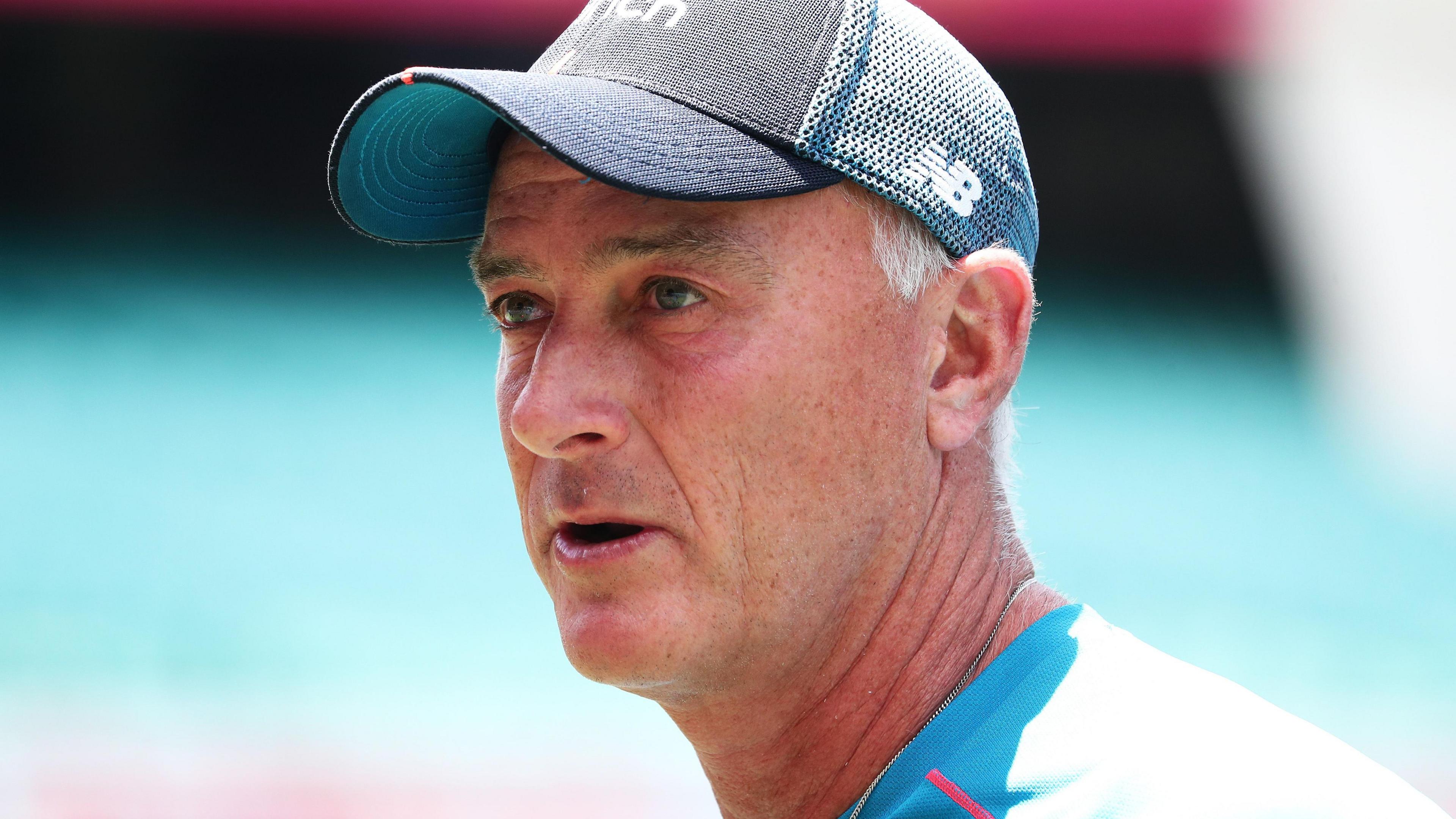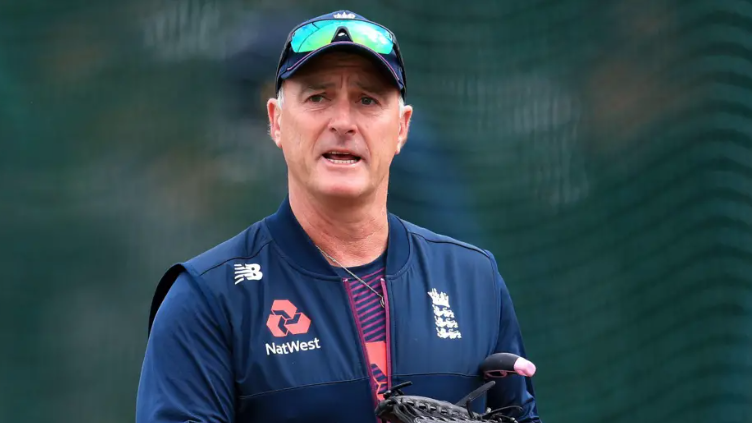Widow says support could have saved Graham Thorpe

Graham Thorpe played for England between 1993 and 2005 and spent a further 12 years as a coach
- Published
The widow of former cricketer Graham Thorpe says he would still be alive if he had received more support from the England and Wales Cricket Board (ECB) after leaving his coaching role.
Mr Thorpe, one of the most respected batters of his generation and a former England assistant coach, took his own life in August 2024 after struggling with anxiety and depression.
A coroner said the ECB had funded therapy, hospital stays and extended his health insurance after he left in February 2022, but his widow Amanda Thorpe said his mental health worsened in the months that followed.
The ECB said it had met with Ms Thorpe to discuss her concerns and had been in regular contact with her and the wider family.

Graham Thorpe's widow Amanda and daughter Emma
An inquest at Surrey Coroner's Court in Woking in July heard Mr Thorpe had "spiralled into depression" after losing his job as a batting coach following an Ashes defeat in Australia.
He had tried to take his own life on another occasion, the inquest heard.
Coroner Jonathan Stevens said there were "failings" in the care provided by health professionals in the months before he died and recorded a conclusion of suicide.
Ms Thorpe said she believes more could have been done to help him feel better connected during the period of transition.
'Loss felt deeply'
She told TalkSPORT if the "entire rug of his cricketing career had not been pulled from under him so completely…it is really clear to me that he would still be alive, so it would have made all the difference".
She added: "It is hindsight and no one has got a crystal ball but it was just too much – the cliff, the whole mental breakdown of 'I am no longer in that family'.
"If he had had just a little bit of the support framework there to lean on a bit to just transition a bit more, it would have made all the difference."
Mrs Thorpe said remote support offered was "woeful" and did not go far enough.
"As he went through these sessions, it was clear that he wasn't coping. He was getting worse," she added.
"We really did ask for help. I knew he needed more help than that and it wasn't forthcoming."
An ECB spokesperson said: "Graham was not only one of England's greatest cricketers, but also a deeply admired and much loved person.
"His loss has been felt deeply across the cricketing community and far beyond and our thoughts and heartfelt sympathies remain with his wife Amanda, his children and all those who loved him.
"Graham's passing is a heart-breaking reminder of the challenges many face with mental health. His death was examined by a coroner. The inquest was held earlier this year with full support from the ECB.
"We have met with Amanda to discuss her concerns and have been in regular contact with her and the wider family."
If you have been affected by any of the issues in this story, help and support is available at BBC Action Line.
Follow BBC Surrey on Facebook, external, on X, external. Send your story ideas to southeasttoday@bbc.co.uk , external or WhatsApp us on 08081 002250.
Related topics
- Published23 July
- Published24 July

- Published25 July
